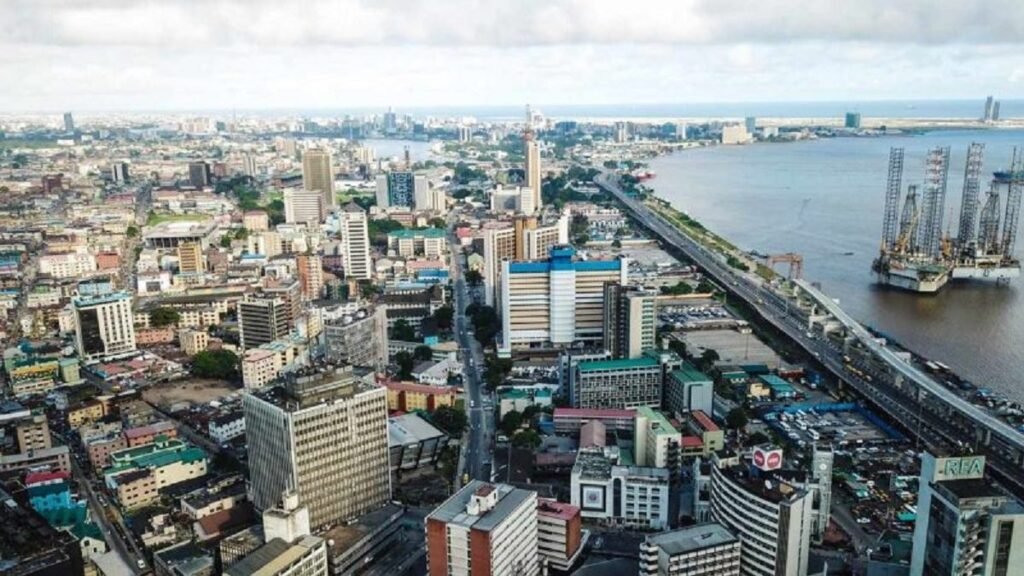Nigeria’s September cost hikes dampen private sector activity – PMI
The Stanbic IBTC Purchasing Managers’ Index (PMI) released by S&P Global revealed that business conditions in Nigeria’s private sector were generally stagnant in August.
The PMI report noted that although new orders returned to growth, the rate of expansion was small and insufficient to bring about an increase in business activity, which declined slightly.
“However, employment continued to rise as companies tackled outstanding business at a faster pace. Companies continued to grapple with sharp increases in input costs as inflation accelerated since July.” As a result, companies increased their selling prices at a faster pace,” the report said.
The composite PMI rose to 49.9 in August from 49.2 in July, but remained slightly below the unchanged benchmark of 50.0, indicating that business conditions in Nigeria’s private sector were generally stable.
According to the report, the overall stagnation in business conditions is consistent with the trend of business activity, which has declined slightly for the second consecutive month.
“Companies reported that demand remained subdued amid strong inflationary pressures, but there were some signs of economic stimulus as new orders returned to growth.”
“New business increased slightly, reversing the decline seen in July. That said, the pace of expansion was much slower than the series average. increased in three out of four sectors.
“Employments also increased, with the current job creation period extending to four months.Although gradual, the recent increase in staffing levels was the fastest since November last year.
“Increased staffing levels and a restrained influx of new orders allowed companies to burn through backlogs at the fastest pace since June 2022. Input costs rose sharply again in mid-third quarter. Purchasing cost inflation reached a five-month high as material and transportation prices rose and a weaker currency increased cost pressure.
“Labour costs also rose, as companies raised salaries in response to rising costs of living. Rising input costs are often passed on to customers, and output prices subsequently rose at their sharpest pace in five months. It has risen.”
Input stocks fell for the first time in 17 months as companies cut back on purchasing activity due to soaring raw material costs and weak demand, the PMI report said.
Additionally, the inventory decline was one of the steepest on record outside of the COVID-19 pandemic period. Meanwhile, supplier lead times continued to shorten. Expansion plans have made companies optimistic that production will increase next year.
Although up from an all-time low in July, sentiment remains the least optimistic since the survey began, the index found.
Muyiwa Oni, Head of West Africa Equity Research at Stanbic IBTC Bank, commented: “Nigeria’s headline PMI rose slightly to 49.9 points in August from 49.2 points in July, but remained slightly below the unchanged 50.0 points, indicating that Nigeria’s business conditions are generally stable. ‘Nigeria’s private sector.
“The overall stagnation in business conditions was in line with trends in business activity.Nigerian companies saw a partial decline in business activity in August, similar to July.”
Mr. Oni said that while some companies increased production due to new sales expansion, others reported that demand remained weak amid significant cost pressures.
The head of equity research explained that activity increased in the manufacturing and wholesale and retail sectors, but decreased in agriculture and services.
Regarding purchase prices, respondents noted that the cost of materials, especially animal feed and paper, has increased, while logistics and transportation due to higher fuel prices are also contributing to inflation.
Some panelists pointed out weakness in the USD/NGN pair. Production price inflation also accelerated to a five-month high in August, with just under half of all respondents suggesting a rate increase.
“The increase in production prices reflects higher costs to customers.Nigeria’s economy continues to grow as the oil sector grew by almost 2.8% in the first quarter, even as the non-oil sector remained flat at 2.80%. As a result, Nigeria’s economy grew by 3.19% in the second quarter, compared to 2.98% in the first quarter, compared to the same period last year.
“The continued weakness in non-oil sectors continues to reflect rising interest rates, sustained inflationary pressures and local currency depreciation.
“Sector-wide, the services sector remains the economy’s growth engine, contributing 69.3% to real GDP growth (though down from 83.2% of GDP growth in Q1 2024).Industry and Agriculture have contributed 20.5% and 10.2% respectively to the real GDP growth rate.
“Nonetheless, the contribution of information and communications, ICT (a major source of growth in the services sector) to overall economic growth has slowed since Q3 23.
“However, gains in the oil sector have proven to compensate and keep the overall economy on a growth trajectory of 2.5-3.2% year-on-year.
“In H2:24, the expected moderate rise in headline inflation should provide some respite for domestic demand. However, higher interest rates and weaker local currencies remain headwinds for non-oil sectors.
“Furthermore, even if data traffic increases, ICT growth is likely to remain constrained by slowing growth in internet and telephone subscriber numbers. 3.1% maintains forecast” #Nigerian private sector activity falls in September due to rising costs – PMI
Adeyemi’s hat trick gives Borussia Dortmund Hammer Celtic a 7-1 win

